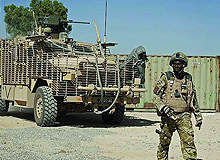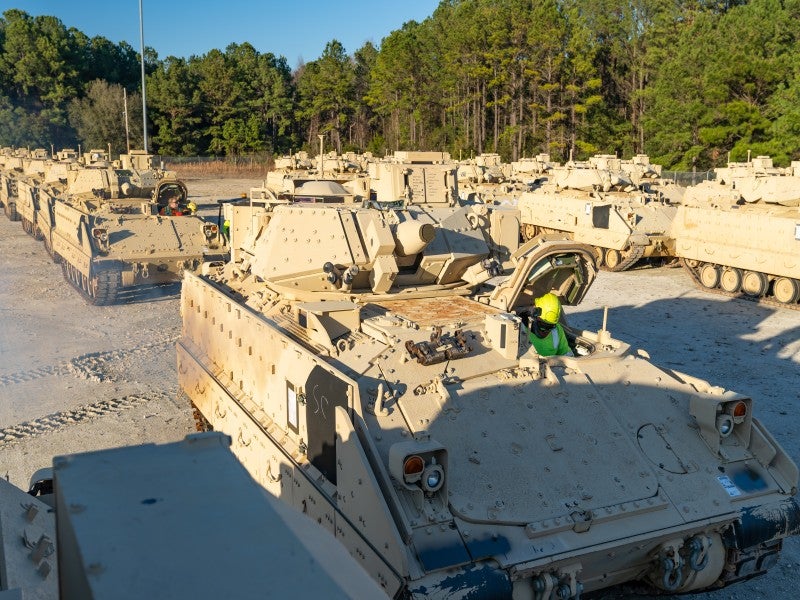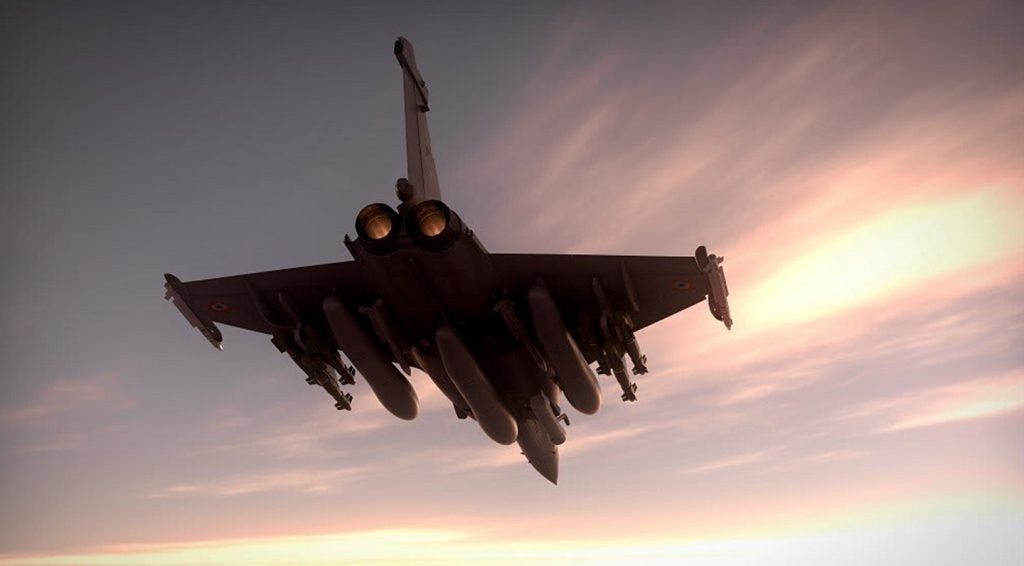
Making bases in hostile territory secure is crucial to the success of any military operation. Not only is it vital for the protection of the lives of soldiers on the ground, but it is also imperative in winning the battle for morale and confidence among troops and local communities.
In constructing a base, there are many straightforward measures that can be taken to limit the physical threat from bombs, gunfire and mortars, for example, but there are other kinds of attack that are harder to militate against.
“We have seen many attacks on bases by the Taliban in Afghanistan using pretty tough and imaginative means, including suicide attacks, vehicle bombs and gunmen,” says Colonel Richard Kemp CBE, author of Attack State Red, an account of a landmark tour of duty in Afghanistan.
“But they have not succeeded in taking over any bases. You need physical protection to withstand bombs and breaches. In some areas it is difficult to create stand-off defences where you can stop and check vehicles and people before they get close enough to do any damage, but that is an important part of the physical security measures.
“The first and most important part of securing a base is intelligence gathering and the screening of personnel. The most successful attacks have been when enemy forces have infiltrated a base. That is hard to counter when you are trying to train and integrate with local forces.
See Also:
A critical part of counterinsurgency policy is to work closely with them to develop trust, so the enemy exploits that, which is unsettling for coalition forces.”
How well do you really know your competitors?
Access the most comprehensive Company Profiles on the market, powered by GlobalData. Save hours of research. Gain competitive edge.

Thank you!
Your download email will arrive shortly
Not ready to buy yet? Download a free sample
We are confident about the unique quality of our Company Profiles. However, we want you to make the most beneficial decision for your business, so we offer a free sample that you can download by submitting the below form
By GlobalDataKemp is a former commanding officer of the 1st Battalion, The Royal Anglian Regiment, who later commanded all UK forces in Afghanistan. He was a member of COBRA, the national crisis-management committee, and worked on international terrorism, Iraq and Afghanistan for the UK Government’s Joint Intelligence Committee. An experienced infantryman, he fought in Iraq from 1991, and has returned there since the 2003 invasion. Whilst a commander in Afghanistan, he devised a protocol for combating suicide attacks, which has been taken into general use by the armed forces. He has seen at first hand the attempts by the Taliban to infiltrate bases in Afghanistan.
Cases of insurgents entering bases have frequently been in the headlines. In November 2010, six International Security Assistance Forces (ISAF) troops were killed during a training exercise by a man wearing the uniform of the Afghan border police, who turned his weapon on people who believed him to be an ally. In July 2010, three UK troops were shot dead by an Afghan colleague inside a patrol base in Helmand province.
At the start of 2010 it emerged that an al-Qaeda suicide bomber killed seven CIA agents in Afghanistan. The killer was identified as a double agent, who was believed by Jordanian agencies and the CIA to have been turned after his arrest the previous year. The attack, which took place at Forward Operating Base Chapman, was the worst against US intelligence officials since the bombing of the US embassy in Beirut in 1983. Furthermore, such threats are not confined to forward areas. The mass shooting by a US Army Major serving as a psychiatrist at Fort Hood, Texas, in November 2009 left 13 dead and 30 wounded.
Accent on intelligence
It is clear, therefore, that infiltration of bases is a major threat, but it cannot be countered just with the physical defences and surveillance technology that guard against suicide bombs or vehicle attacks. Intelligence and screening processes are the main weapon for combating it, and Afghanistan – where the number of members of the local army and police forces is to grow from 260,000 to over 300,000 next year – is a prime testing ground for the effectiveness of the techniques in use.
“As well as the threat of the enemy infiltrating by posing as members of local forces, there is also the threat of locally employed civilians working inside a base,” remarks Kemp. “Another issue is interpreters. We can’t operate without them and they have unique access to sensitive information.
“They see and know a lot, so they and their families come under a lot of pressure from insurgents. We must screen them rigorously and also use people from further away, so that their families are less vulnerable.”
Knowing about a threat in advance is the most effective way of preventing it. Whether it is in Afghanistan or any other theatre of operations, gathering accurate and timely intelligence is the most effective weapon for protecting troops on the ground. In any country, however, it can be a huge challenge to forge the links with the local community that produce the kind of intelligence needed.
When the threat is of a more covert and subtle nature, like an attempt to infiltrate a base, good intelligence may, in fact, be the only weapon to combat it.
“Intelligence about external threats, including plans to attack or infiltrate a base, is the key in places like Afghanistan,” says Kemp. “It is also about screening troops and employees that enter the base. This can be very difficult. Record-keeping is not the same there as it is in the UK or the US. It is possible to conceal the histories of individuals. Intelligence is never perfect, but it is a significant element of work. You just have to be as rigorous as possible, build a good database and get a good relationship with locals, as they know best. You have to trust the local population.
“It is like airline security. The enemy will try to find ways around it, so you have to think ahead and predict, not just react. You must anticipate the means the enemy will use, and you must constantly test your own systems.”
Trust the local population
The last two years have seen a major shift in the ethos in Afghanistan, where mentoring, integrating and partnering with local forces has become the main driver. This process relies on trust, which can be difficult to build when dealing with people from very different cultural backgrounds.
“Soldiers are not recruited for their cultural sensitivity, but training has been developed to foster that, so it is improving all the time. But the enemy works to undermine trust. Screening processes do identify threats frequently, raising doubts about the reliability of certain individuals. It is also encouraging that there is a big increase in tip-offs from local people about potential threats, including infiltration of bases. There is a big risk to the informers, so it shows that we are building trust and confidence,” believes Kemp.
Opening the lines of communication through which useful intelligence flows from the local community takes time, effort and a consistent approach to developing trust. It is a hard task, but one that is constantly informed by the lessons learnt from dealing with local people from different cultures. In Afghanistan, for example, the quality of intelligence has greatly improved over the years, as forces learn to deal with locals in a manner that builds confidence.
The actions of individual soldiers are crucial to these efforts, but so are the structural changes that are taking place and which must continue to strengthen in the country through political efforts.
“Locals must trust our staying power and our willingness to protect them,” notes Kemp. “In the training of local forces there is a long way to go, but we are making good progress. They will develop in time to the point where they will take over handling the insurgency, but they must first have a government they can be loyal to and fight for.”
From the perspective of securing bases, the political messages that are sent out to the local populations are as important as the physical defences that guard against vehicle attacks and suicide bombs.
Intelligence gathering relies on close contact with local people, who must trust the forces on the ground in order to share information with them. Physical barriers, surveillance technology, intelligence gathering and screening processes are the key elements in protecting bases, but equally important is a consistent and credible political message that helps local populations to feel confident in helping fight an insurgency.
This article was first published in our sister publication Defence and Security Systems International.






